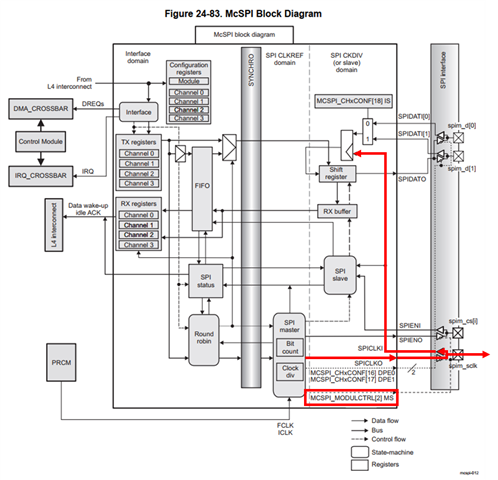Tool/software:
Hello,
I'm working with the AM5728 and facing an issue where MCSPI1 always reads 0x00 from the MISO pin (SPI1_D1), even though the slave device is sending data correctly.
1. PAD Configuration
CTRL_CORE_PAD_SPI1_D1 (F16) = 0x00040000
CTRL_CORE_PAD_SPI1_D0 (B25) = 0x00010000
CTRL_CORE_PAD_SPI1_CLK (A25) = 0x00010000
CTRL_CORE_PAD_SPI1_CS0 (A24) = 0x00010000
2. MCSPI Register Settings
MCSPI_MODULCTRL = 0x00000001
MCSPI_CHxCONF = 0x181E0FC0
Observations
-
The slave correctly receives data via MOSI.
-
An oscilloscope shows valid data on the MISO line.
-
However, when I read from MCSPI1 RX register, all values are 0x00.
Could you please help me understand what might be missing or misconfigured?
Thanks in advance.


